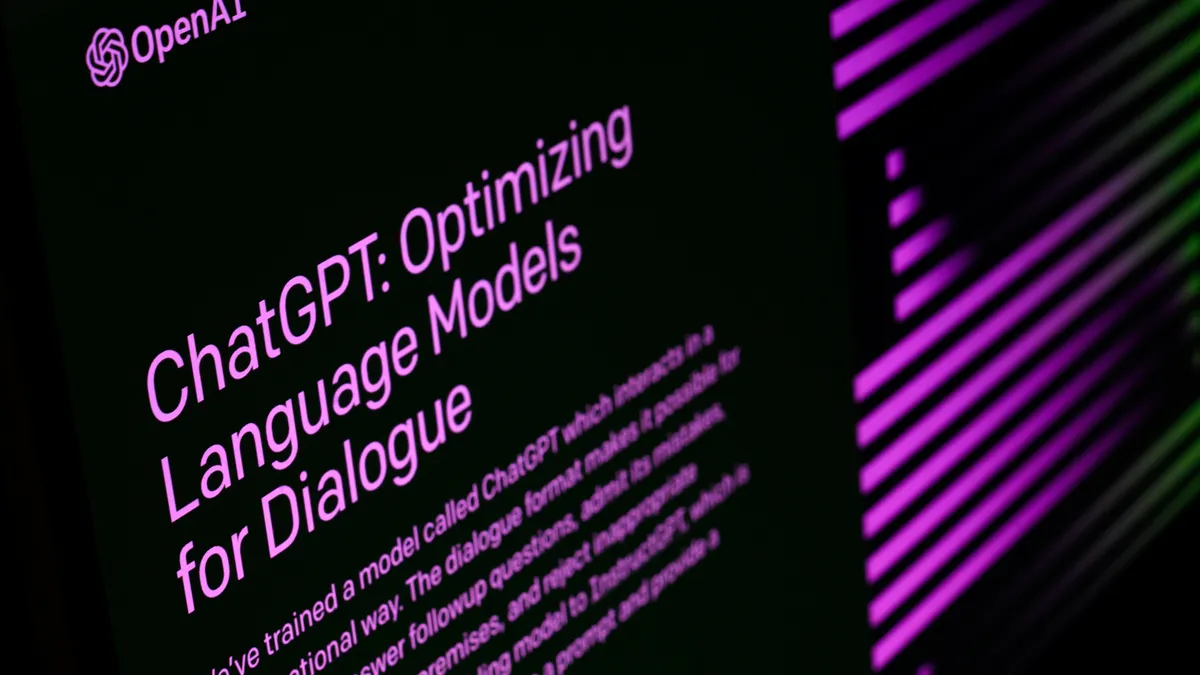Dive Brief:
- Advertising agencies will replace 7.5% of jobs with automation by 2030 amid the rise of generative artificial intelligence (AI), according to a new Forrester Research forecast. About one-third of agency jobs will be at risk of replacement by 2030.
- Clerical, secretarial and administrative roles will be the most threatened by generative AI, representing 28% of job losses. Sales and similar roles account for 22% of the losses expected by Forrester, while market research and related fields stand at 18% of losses.
- The report identified a negative correlation between jobs that are heavily influenced by generative AI, like editors, writers and programmers, and their potential to be automated. Instead, those positions — typically higher-paid and better-educated — could see increased productivity, resulting in “smaller, yet more capable, agencies,” according to Forrester.
Dive Insight:
Generative AI has gripped the advertising industry in 2023, stoking fear and excitement while sparking an arms race to get an early lead in the sector. Forrester’s forecast, released around the Cannes Lions International Festival of Creativity this week, could quell some pessimism around how AI will usurp creative work at agencies. That said, the research makes clear that plenty of agency jobs are threatened, with about 33,000, or 7.5%, expected to be lost to automation by the start of the next decade.
Software like OpenAI’s ChatGPT and DALL-E, which can quickly produce lifelike copy and visuals based on user prompts, has made generative AI commonplace in a short period of time. Advertisers have not hesitated to experiment with the tech, with about 56% of business-to-consumer marketers already applying generative AI, according to Forrester data. Another 40% are in the exploratory phase.
Coca-Cola earlier in the spring ran a campaign that let consumers and artists leverage OpenAI’s tools to make new ads based on its library of branded assets. Agencies, too, are flocking to generative AI. WPP and chipmaker Nvidia recently struck a deal to develop a content engine built on the software, eyeing creative asset production at scale, while rival ad-holding groups are exploring other applications.
With use cases proliferating, speculation has abounded as to what jobs will be imperiled by automation, with a lot of discourse centered on creatives. Yet, Forrester’s findings suggest that creative jobs, including writers and editors, might be among the least at-risk. While these fields will be highly influenced by generative AI, the tech could enhance their productivity, avoiding “explicit” job losses, according to Forrester.
The share of agency jobs in creative is therefore forecast to grow, as are professions including data science, management, software, public relations and market research. At the global level, Forrester foresees digital marketing and strategy specialists expanding their headcount by more than 20% by 2028.
“Forrester finds that originality is the most significant factor that lowers a job’s automation potential,” the report said. “Put another way, the more creative the role, the less likely that it can be replaced by automation.”
On the other hand, clerical, sales, finance, administrative and labor-intensive roles will command a smaller share of agency work over the next several years. Forrester does not believe annual agency headcount growth between now and 2030 will exceed pre-pandemic levels.
The impact of generative AI on agency jobs over the next two years will remain “modest” as ethical and legal issues surrounding the tech, including those related to intellectual property and bias, are hashed out, per Forrester. That said, marketers might need to start integrating AI and shoring up their know-how or otherwise fall “perilously behind.”















